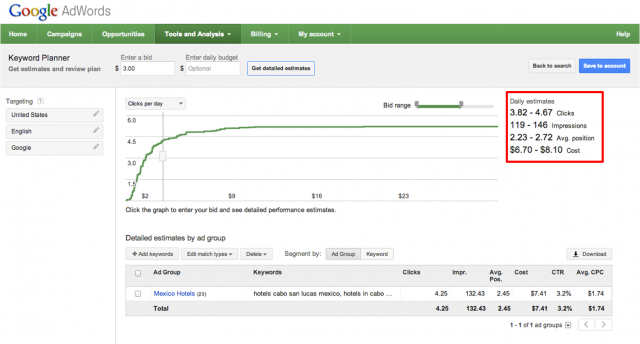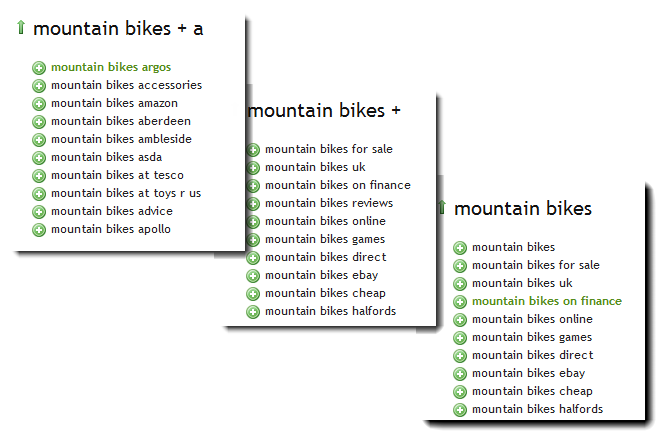5 Search Engine Optimization Tools that Every Online Marketer Should Explore

1. Soovle (http://www.soovle.com)
Souvle is a keyword research tool that allows you to build a massive list of related keywords or keyword phrases. It works by entering in a search term and compiling the suggestions that multiple search engines come up with in regards to the query. Up to 10 different search engines can be included in your research. That means in addition to the major engines everyone is familiar with, namely Google, Bing, and Yahoo; you also get to compile suggestions from shopping engines like Amazon, or video engines like Youtube. You can even get suggestions from foreign search engines that you’ve never heard of.
This sort of functionality can be very useful for things like generating a big list of keywords related to your niche. It’s also a wonderful asset if you don’t have the clearest idea of the terms you should be targeting. It can be very difficult to predict the terms people will search, but covering all your bases is fairly easy when you’re using the best suggestions from a variety of different highly utilized search engines.
It’s especially worth noting that each engine can provide you with a different perspective on the same query. For example, Amazon might suggest all of the retail products available around a keyword, while YouTube will suggest visual and audio descriptors of the same term. Thus Soovle can be very useful in your attempts at content generation.
2. Google Keyword Planner (http://adwords.google.com/keywordplanner)

The Google Keyword Planner is the Search giant’s latest addition to the adwords suite of free products for public use. And it’s predictably a very powerful way to go about generating keyword ideas and estimating the traffic those ideas will generate. The Keyword planner is in the process of slowly phasing out adwords last free product, the Keyword tool, which I personally find to be a lot simpler, but not nearly as multi-faceted. Keyword tool is still available for the moment, at least at the time of this writing, but it is slated to be removed from public reach.
Keyword Planner can be used to improve or create existing or new adword campaigns by adding in additional effective keyword ideas to target. The Planner allows you to search for keyword and ad group ideas based on terms that are relevant to your product or service, your landing page, or different product categories. But perhaps the most useful addition that the Planner brings to the table is it’s traffic and revenue estimator.
With this handy tool, you can make accurate estimations concerning clicks, search volume, and many other keyword performance metrics.
You can also track keyword performances over time, thus allowing you to determine what terms have consistent appeal versus those that might merely be momentarily trendy. Though the latter can be just as useful in terms of campaign targeting, so long as you’re quick to act.
Another interesting attribute to your list building is Keyword planner’s similarity to an ecommerce shopping cart. The Keyword Planner allows you to create keyword lists you like by adding them to a shopping cart. I suppose that this is Google’s attempt to bring familiarity to the process. After all, if you’re involved in an online store’s inner workings, you certainly get the idea behind a shopping cart.
3. UberSuggest (http://ubersuggest.org)

The UberSuggest tool is an interesting and somewhat quirky concept, again for keyword generation. Though this particular tool is geared toward finding quality long tail keywords. A long tailed keyword, by the way is a phrase that contains an initial popular keyword, and a few dangling modifiers. Not in the grammatical sense, mind you. Instead these modify the traffic you’re likely to receive. Long tail keywords don’t attract massive volumes of search information on their own, but they do attract a sizable amount in aggregate. If you word them correctly, you’re bound to catch stragglers searching for something in particular here and there. So if you target a lot of long tail phrases that each get a few searchers here and there… Well, you can do the math.
UberSuggest works by entering in a keyword or phrase and receiving that word or phrase back along with a long tail that’s ordered alphabetically. In other words, there will be up to 26 separate keyword lists for your search term + a letter of the alphabet. It’s a very organized way of going about things, and can be great if you don’t have much of an idea on where to start targeting long tails.
Usually, UberSuggest is used for compiling large lists which you can the filter later in a spreadsheet. Once your results are filtered, you can check their efficacy with a tool like the Google keyword planner mentioned earlier.
4. Keyword Questions (https://freekeywords.wordtracker.com)
WordTracker’s popular SEO suite includes a free tool by the name of Keyword Questions and it’s again a quality asset in building long tail keyword lists. WordTracker espouses the view that marketers should focus on multiple keywords within a “keyword niche.” By doing so, you’re likely to attract a broader section of the population to your site.
The reason this tool is named “Questions” is because it will often show the question queries that search engines most receive within a selected niche. So to take a personal example, the search term might be ecommerce, and the suggested question keyword would be: “Where’s the best place to find helpful information about ecommerce?” The answer would of course be the Ashop blog, but you knew that already, didn’t you?
Self-approval aside, if you know the questions the consumers in your niche are asking, you can easily target the answers in your sites content. And when Keyword Questions is providing you with on average 2000 different phrases per search, you can do so in quite the comprehensive fashion.
5. MagesticSEO (http://www.majesticseo.com)
The final tool on our miniature survey is called MagesticSEO and unlike the four former entries, this one isn’t about keyword generation. Instead MagesticSEO aims to inform you about your site’s, (and its competition’s) link building efforts. I should mention that MagesticSEO is a suite of products, not just one, and many of them are pay services. However, there is a limited use free package available.
With information on link building as its main functional purpose, the array of data available from MagesticSEO is massive, and quite versatile. It can show you your site’s backlinks to its domains, subdomains, and pages. It’s fresh versus historic index function can show you a revolving monthly cycle of the top links to your site, or an all-time history of the compiled records for the same, respectively.
To elucidate, MagesticSEO allows you to keep track of which backlinks are directing the most traffic to your site, so that you can focus on at least keeping those active. You can also see which pages on your site need more backlinks and work on broadening the traffic stream to those areas.
What’s really interesting about MagesticSEO is that everything you can learn about your own site, you can also get the same details about a competitor’s site as well. you can search your competition’s backlinks, see where you stand in comparison, and compare up to 5 different domains backlink histories at a time while you’re researching. This can be a bountiful investment if you know how to interpret the data. And you can also feel a smug sense of self-satisfaction if you see your competitors engaging in Black Hat link building, while your site stays on the straight and narrow.
I hope this review of some of the more effective free SEO tools available has been helpful to you in your optimization efforts. Feel free to leave a comment on your own favorite SEO tools or your impressions of any of the ones on this list if you like. As always, we here at the Ashop blog are anxious for your feedback.














Comment(s)0